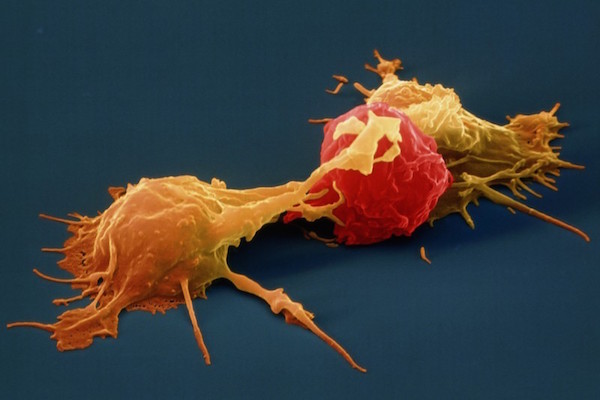Cytokine-induced killer cell transplantation: an innovative adoptive therapy
Abstract
Cytokine-induced killer (CIK) cells areeffector immune cells with anti-tumor potency of T lymphocytes as well as non-major histocompatibility complex restricted elimination of natural killer cells. Preclinical models have shown that CIK cells have strong anti-tumor killing capacity against a variety of blood cancers and solid tumors. Clinical studies confirm the advantages of CIK cells, including the safety of CIK cell therapy in patients with advanced cancer. A preeminent property of CIK cells, which may help them to overcome some of the limitations of other adoptive immunotherapy strategies, is their ability to be expanded ex vivo to high numbers. Their robust in vitro proliferation provides adequate quantity for multiple adoptive infusions. The tumor-killing capacity of CIK cells is mainly based on the interaction between NKG2D molecules on CIK cells and MIC A/B or ULBP molecules on tumor cells. Moreover, CIK cells have a reduced allo-reactivity across HLA-barriers. This review summarizes the clinical applications of CIK cells and updates of combining CIK cells with other therapies. This review highlights the benefits of CIK cell use in clinical treatment of cancer.

Downloads
Published
Issue
Section
License
Copyright The Author(s) 2017. This article is published with open access by BioMedPress. This article is distributed under the terms of the Creative Commons Attribution License (CC-BY 4.0) which permits any use, distribution, and reproduction in any medium, provided the original author(s) and the source are credited.
